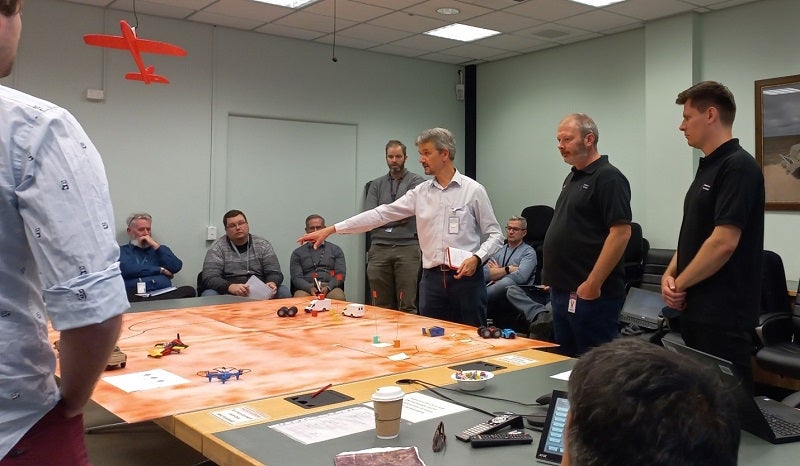
Under the auspices of an extensive naval programme that enables Australia to develop nuclear submarines, the three AUKUS partners – Australia, the UK and US – attempt to resolve the vulnerabilies of land-based autonomous systems, ensuring they can complete their missions and preserve network connectivity in a electronic warfare (EW) contested environment.
The UK Government explained that this land-based venture comes under AUKUS Pillar II, the next phase in which the three nations co-operate on a range of cutting-edge military technologies.
“Through Pillar 2, our countries are collaborating to accelerate collective understanding of AI and autonomy technologies, and how to rapidly field robust, trustworthy AI and autonomy in complex operations while adhering to international law and ensuring the safe and responsible use of AI.”
TORVICE autonomy trial
In a trial in South Australia, the three nations came together to test a range of robotic vehicles and their sensors during a trial at Cultana Training Area.
The ‘Trusted Operation of Robotic Vehicles in a Contested Environment’ (TORVICE) trial was conducted in the autumn of 2023, but announced on 5 February 2024.
“Understanding how robotic vehicles react in contested environments accelerates our collective know-how and helps improve the system to overcome such attacks,” stated Dr Peter Shoubridge, chief land and joint warfare at defence.
How well do you really know your competitors?
Access the most comprehensive Company Profiles on the market, powered by GlobalData. Save hours of research. Gain competitive edge.

Thank you!
Your download email will arrive shortly
Not ready to buy yet? Download a free sample
We are confident about the unique quality of our Company Profiles. However, we want you to make the most beneficial decision for your business, so we offer a free sample that you can download by submitting the below form
By GlobalDataTORVICE follows the first AUKUS artificial intelligence (AI) and autonomy trial held in the UK in April 2023.
In December 2023, AUKUS defence ministers announced that resilient and autonomous AI technologies would be integrated into national programmes in 2024.
During the trial, US and UK autonomous vehicles conducted many missions, such as, route reconnaissance while subjected to a range of effects generated by Australia.
Outcomes will improve the resilience of autonomous systems when subjected to EW, laser and position, navigation and timing (for example, GPS) attacks. This will also ensure systems reliably deliver capability in the testing environments of the modern battlefield.
The military adviser to the UK’s Defence Science and Technology Laboratory (Dstl) , Lieutenant Colonel Russ Atherton argued:
“The science and technology will be an absolute game-changer and give us operational advantage. The ability to deploy different payloads such as sensors and logistics across a larger battlespace will give commanders greater options than currently exist.”

Autonomous land systems
The US Army has expressed its desire to avoid trading “blood for first contact,” as the service commits to undertaking an extensive cultural shift in the way its land forces operate. This will involve greater digitalisation and advanced robotics.
Modern uncrewed ground vehicles (UGVs) are now suitable for a wider variety of defence and security applications beyond the traditionally limited scope of explosive ordnance disposal. Nations including China, France, India, Russia, the UK, and the US are developing logistics; intelligence, surveillance and reconnaissance; and combat-capable UGV platforms.
According to the leading intelligence consultancy GlobalData, in a report on Unmanned Ground Vehicles (2023), autonomy is the key enabler behind the transformative potential of current and future uncrewed systems.
“It is thus the value chain with the most long-term growth potential as the technology remains in its earliest stages of development, with true autonomy still an elusive concept.”



